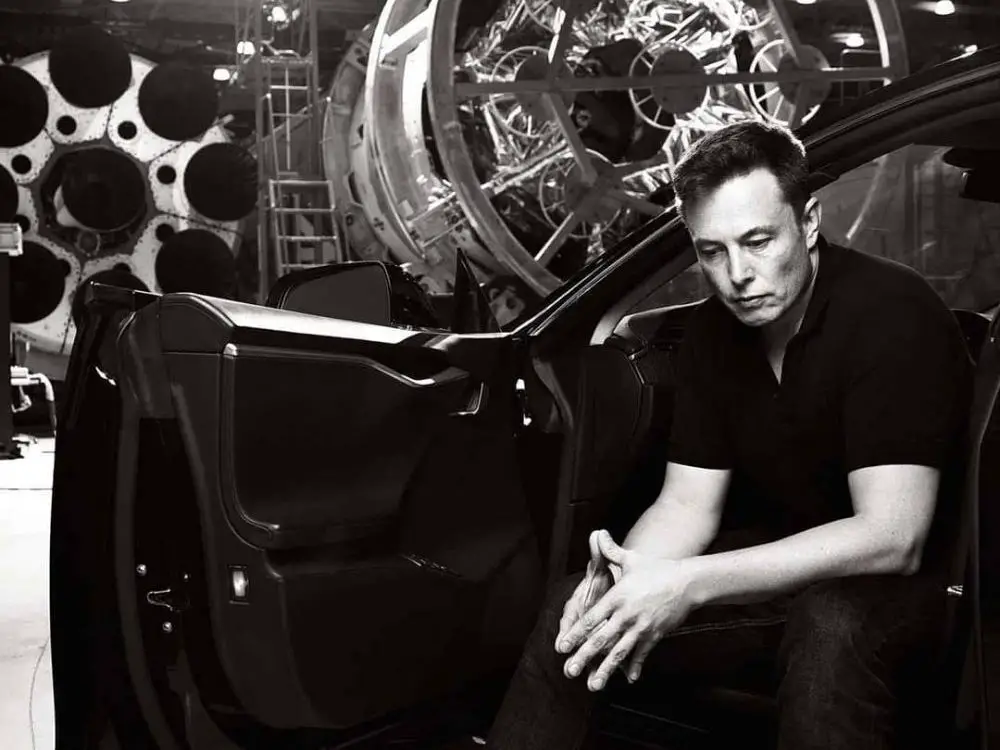When Elon Musk publicly accused Vern Unsworth of being “a pedo guy” after the diver made headlines for his rescue of a Thai boys soccer team, it sent shockwaves across Twitter and the stock market. For many of us, it was the first time we had a live front-row seat to a spectacularly childish public meltdown of a major corporate figurehead.
For a moment, it seemed like the once vaunted visionary’s career was over: Tesla’s stocks were projected to tank by as much as $2 billion in a single day, and Musk’s hostile accusations of an innocent man should have cost him his position as the primary personal representative of his company. Neither of these things happened. Instead, Twitter moved on after Musk apologized to Unsworth, and everyone appeared to have moved on with their lives.
It was the the height of cancel culture, when careers and livelihoods of CEOs, artists and politicians were regularly put to the axe for anything ranging from revelations of sexual assault to unscrupulous Twitter posts. So how did Musk manage to come out on top after accusing a hero of trying to molest kids? The answer lies in how we create cults of personality.
What Is a Cult of Personality?
Cults of personality can take different forms and vary in severity and purpose. Some elevate their subjects to near godhood, as we see in Kim Jong Un’s near-apotheosis. Others are less insidious and overt, but nevertheless, manipulative. Steve Jobs belongs in the latter category; he was an extremely private businessman who was propelled to a level of idolization among a generation of young techies. In practice, both extremes rely on the same mechanisms that drive cultlike behavior.
One of the most important steps for establishing a cult of personality is the creation of a founding myth. For the Kim dynasty, it was family patriarch Kim Il Sung’s armed resistance of the Japanese occupation in Korea, which almost single-handedly drove the brutal regime out and nearly united the Korean peninsula. This story is greatly exaggerated, as almost all these founding myths are. In truth, Kim Il Sung was a fine guerrilla leader, but Japan was fighting a catastrophic battle between the United States and Soviet Union, and Kim’s small raids offered about as much a threat to Japan’s Korean empire as a house cat between three bears.
In the same way, Musk’s founding story is largely exaggerated, namely, his stint with PayPal and involvement with Tesla Motors. Ask anyone on the street how Musk got started, and they would probably tell you that it was when he revolutionized banking through the creation of PayPal. In truth, PayPal was the invention of Confinity; Musk merely took on a short directing role as acting CEO when his company X.com merged with Confinity, leaving his position not too long before it was bought by eBay.
A similar story plays out in his history with Tesla. The cutting-edge electric vehicle company is often seen as Musk’s most successful personal venture, but he didn’t start it, nor did he design the battery technology that led to the company’s success. Martin Eberhard and Marc Tarpenning were the original brains behind the project, with Musk joining in later and gradually becoming the face of the company after both left.
It could be argued that most of Musk’s contributions to his most praised ventures are capital in nature. He is, after all, the prototypical venture capitalist. This wouldn’t be much of an issue if he quietly took on the role of a front man and spokesman as Jobs did before him, but Musk is different. For as much spotlight as he finds himself in, you never hear much from Musk about the managerial duties of the companies he’s involved in, like the day-to-day operations of overseeing production, logistics and financial concerns that inevitably come from holding a managerial position. What you do see is Musk frequently discussing the specifics of SpaceX and Tesla designs while giving inspirational speeches about the power of the mind and navel-gazing over humanity’s future among the stars. It’s a poetic sentiment and goes a long way in creating an aura of benevolent wisdom.
It’s undeniable that Musk has managed to carve out a prominent place in pop culture. A quick search on social media sites and Google Images reveals a litany of heroic photographs, quotes and fan art that wouldn’t look out of place next to Maoist propaganda. There is even a hardcore fanbase of “Musketeers” made up of people like Jim Ocean, who wrote a ballad based on Musk’s recent Falcon 9 launch.
What Is the “Devoted Actor” Hypothesis?
Psychologist Scott Atran advanced a theory called the “Devoted Actor” hypothesis. It posits that people become willing to defend any religious, political or cultural ideal at great cost when said values fuse with their common group identity. When a group of people begin to identify an idea or set of principles with what they fundamentally are as individuals, it becomes impossible to compromise on them. This is why people don’t like having to sell family heirlooms or why Democrats and Republicans rarely go against their own party’s stances on core issues. It follows that when someone comes to occupy an important position in this collection of sacred values of the group, they themselves become sacred to it.
Musk has inserted himself as a forefront spokesperson of human advancement. He is a libertarian hero, a savvy environmental advocate, pop-culture aficionado and STEM-lord wearing a suit of money. In many ways, Musk embodies the personification of the human will to live.
This image of a quirky science-messiah is completely intentional. Musk is aware of what he means to his fans and he cultivates their feelings. Musk has compared himself to Tony Stark, made direct references to memes, launched expensive publicity stunts and even smoked weed on a now legendary episode of Joe Rogan’s podcast.
The Man, the Myth, the Legend and the Substandard Pay?
Musk wants people to believe his myth. He wants people to like and idolize him; his business depends on it. As a venture capitalist, a great portion of investment is based on a promise of future financial security. Tesla wasn’t profitable until 2019, SpaceX operates on thin margins and his new Boring company is a money sink. All three rely on massive government subsidies to stay afloat. SpaceX and Tesla both face allegations of abusive work environments and substandard pay, while Musk’s own environmentally-conscious rhetoric is undercut by Tesla’s practice of selling zero-emissions credits to California automakers who fail to meet the state’s production requirements on manufacturing zero-emission vehicles.
Even with the surge in notoriety and success of the NASA partnership, SpaceX is still woefully behind the promised development date of its space capsule, which has NASA leadership worried about missing the vital September launch deadline.
These are the harsh realities facing emergent businesses, and one of the main reasons why Musk is desperate to keep his spotless image intact. Ironically, this defensiveness might very well be what propelled Musk to launch his assault on Unsworth in the first place. Their altercation, after all, started when Unsworth accused Musk of using the tragedy and rescue operation as a publicity piece — a ploy to divert attention away from the work of the rescue team and onto a slap-dash ego project that wasn’t going to work and wasn’t needed. It was the first time someone who held the center of social media’s attention questioned Musk’s motives, and Musk had to retaliate in his usual off-the-cuff fashion.
What a lot of people don’t know about the incident is that neither party really moved on when the drama died down. Unsworth launched a defamation case against Musk while Musk launched one of his own. The suit ended in December 2019, after a jury found that Musk’s accusations were meant as a “general insult” and thus protected under free speech laws, despite evidence coming to light that Musk had hired a private investigator to dig up compromising information on Unsworth. What should have been a remarkable revelation was largely ignored by most outlets, and those “Musketeers” who closely followed the case largely dismissed it as fraudulent.
The inability of the Unsworth incident and many other controversies to meaningfully stick to Musk is a testament to the robustness of his fanbase and his skill in the art of self-promotion. The fruits of this labor are self-evident: Musk inhabits a special position in pop culture compared to similar powerful visionaries like Jeff Bezos, a position that frees him from the kind of scrutiny and suspicion of his moral character and intentions.
In all fairness, it’s hard to reprimand anyone for getting sucked into Musk’s cult of personality. We’re living in a world of collapsing ecologies and economic regression, and Musk’s grassroots promise that we can see space habitation and develop a better world in our lifetime is an attractive promise to believe in. You just have to buy a car first.

















